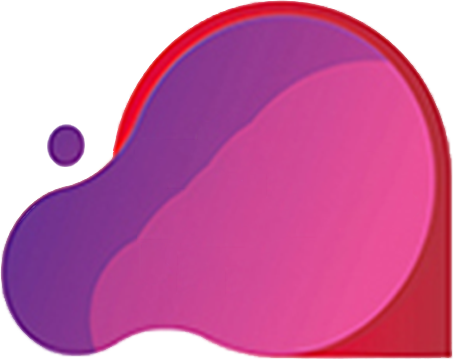




 Some Precautions of Travel Season
Some Precautions of Travel Season
As the weather warms and the school year comes to a close, lots of families are planning to hit the road.
For many, it's a great time to visit places and people near and far away. However, it's also important during this busy travel season to take some precautions (预防措施).
Here are some things to keep in mind—and ways to stay safe and healthy—if you're planning to travel with your family this summer.
1. Airplanes are filthy.
We all know it. But, were you aware that research has been done to identify patterns of infectious disease transmission in the friendly skies? Although there are no comprehensive guidelines, we do know that airplane tray (托盘) tables are infrequently (不经常发生地) cleaned. Given that, packing wipes to clean the areas your family will be touching—like the tray table, armrests (扶手) and headrest (头枕)—is not a bad idea.
Window seats are better protected from the constant aisle traffic, providing a slightly better position to avoid germs. Regardless of where you sit, however, remember the pockets on the backs of seats in airplanes are never cleaned. The pockets often hold trash, dirty Kleenex tissues (舒洁纸巾), food and other nasty items. So keep your stuff out of there.
2. Remember to follow basic food safety practices.
If travelling in a high-risk food area, don't eat anything unless cooked thoroughly. Only eat thick-skinned fruit that you've peeled (剥皮) yourself.
In places where there's a risk that drinking or potable (可饮用的) water may be conta-minated, remember that ice could be contaminated as well. Only drink bottled water in such places. And avoid drinks with ice, smoothies (沙冰) and blended (混合的) cocktails (鸡尾酒).
3. Hydrate .
Water is critical for your body systems to function, including your immune system. Flying is terribly dehydrating (脱水), especially if you have a cocktail. Be sure to travel with a water bottle, and refill it when you can.
A good goal is to consider what you weigh in pounds and consume half that number in ounces of water per day. (For example, a person who weighs 150 pounds would aim to drink about 75 ounces of water per day.)
4. Take a few things from your medicine cabinet with you.
When travelling with kids, don't forget to pack a few items from the medicine cabinet. This includes ibuprofen (布洛芬) or acetaminophen (退热净), a bottle of pedialyte (电解质平衡盐溶液), a few band-aids and antacids (抗酸剂). I hope you never have to use these things, but you will be thankful to have them if you do.
1. Which of the following information is NOT mentioned in this article?
A. Drink enough water during your flight.
B. Take necessary medicine with you.
C. Follow basic food safety practices.
D. Have enough sleep before a flight.
2. How much water should a person who weighs 140 pounds drink per day?
A. 60 ounces.
B. 65 ounces.
C. 70 ounces.
D. 75 ounces.
3. Which is NOT true about the airplanes?
A. Window seats are better protected from the constant aisle traffic.
B. Airplane tray tables are cleaned on an hourly basis.
C. The pockets on the backs of seats in airplanes often hold trash.
D. If you don’t have enough water during a long flight, you may get dehydrated.
4. What should you drink in places where there's a risk of water contamination?
A. Drinks with ice.
B. Bottled water.
C. Smoothies.
D. Blended cocktails.
5. What does “hydrate” mean?
A. Take in water.
B. Lose water.
C. Save water.
D. Purify water.
答案:DCBBA
healthy
adj. 健康的
记 来自health(n. 健康)
搭 a healthy lifestyle 一种健康的生活方式
filthy
adj. 十分肮脏的,污秽的
英 very dirty and unpleasant
记 来自filth(n. 肮脏;污秽)
aware
adj. 意识到的,知道的;觉察到的
记 词根记忆:a(表加强)+ware(注视)→一直注视→意识到的
搭 be aware of/that... 意识到…
pattern
n. 图案,花样,式样;模式,方式
英 the regular way in which sth happens or is done
记 联想记忆:伴侣(partner)相处的模式(pattern)各不相同
搭 behaviour pattern 行为模式
wipe
vt. 擦去;擦,抹,揩 n. 湿巾;擦,拭,揩
例 Nothing could wipe out his bitter memories of the past. 任何事情都无法抹去他对过去的痛苦记忆。
protect
v. 保护;防护
记 词根记忆:pro(在前)+tect(盖上)→从前面盖上→保护
例 These children are learning how to protect themselves. 这些孩子正在学习如何保护自己。
constant
adj. 连续发生的,时常发生的;恒定的;不变的 n. 常数;恒量
英 happening all the time or repeatedly
item
n. 项目;条款;一件;一条
英 one thing on a list of things to buy, do, talk about, etc
consider
v. 认为;考虑
英 to think about sth carefully, especially in order to make a decision
例 Ann seriously considered resigning. 安认真考虑过辞职。
consume
vt. 消费;消耗;吃;喝
英 to use sth, especially fuel, energy or time
记 词根记忆:con(表加强)+sum(取)+e→全部取走→消耗
例 They say children are consuming more meat and soft drinks than before. 他们说和从前相比,现在的孩子们吃的肉更多,喝的软饮料也更多了。
infectious
adj. 传染(性)的;有感染力的
英 an infectious disease can be passed easily from one person to another, especially through the air they breathe
transmission
n. 传送;发射;传递;传播
英 the act or process of passing sth from one person, place or thing to another
comprehensive
adj. 全面的;综合的
记 词根记忆:com(表加强)+prehens(抓)+ive(…的)→全部抓住的→全面的
guideline
n. [常pl.]指导方针;准则;行动纲领
记 组合词:guide(指导)+line(路线)→指导方针
搭 security guidelines 安全准则
aisle
n. 走廊,通道
记 联想记忆:ai(看作air,空气)+sle→让空气流通的道→通道
搭 an aisle seat 一个靠过道的座位
germ
n. 微生物;细菌;起源;萌芽
记 本身是词根,意为“种子”→萌芽
nasty
adj. 令人讨厌的;不友好的,恶意的;下流的;低劣的
英 very bad or unpleasant
记 联想记忆:他做事总是很草率(hasty),真是令人讨厌(nasty)
stuff
n. 原料;东西,物品 vt. 填;填满;给…填馅
记 与staff(职员)一起记
搭 stuff ...with... 将…填满/塞满
contaminate
vt. 污染;玷污;腐蚀(人的思想或品德)
英 to make a substance or place dirty or no longer pure by adding a substance that is dangerous or carries disease
例 Chemical fertilisers and pesticides can contaminate water supplies. 化肥和杀虫剂会污染水源。
critical
adj. 批判的;挑剔的;至关重要的,关键性的;严重的
记 词根记忆:crit(判断)+ical(…的)→作出判断的→批判的
搭 be critical to 对…至关重要 critical questions 关键问题
immune
adj. 免疫的,有免疫力的;不受影响的;免除的,豁免的
记 词根记忆:im(不)+mun(公共的)+e→不受公众影响的→不受影响的
搭 immune system 免疫系统